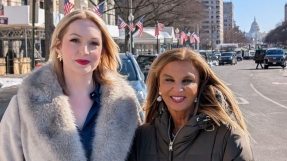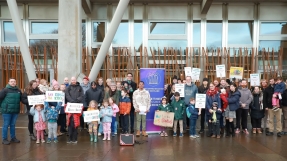Bishop of Blackburn on relations with Muslims and 'no-go areas'
Christian Today spoke to the Bishop of Blackburn, the Rt Rev Nicholas Reade, whose diocese is home to a large Muslim population, to find out his views on Bishop Nazir-Ali's comments and the state of relations between Christians and local Muslims.
CT: Do you agree with the Bishop of Rochester that areas with a high Muslim population are becoming "no-go areas" for Christians?
NR: I think one thing that has to be said is that the majority of immigration to Britain is from other European countries and Africa and Asia and they are bringing the rich treasures of their Christian faith. Many of them are Roman Catholic and so the Roman Catholic Church is experiencing a rise in membership. The view that the people who are packing into this country are of religions other than Christianity is absolute nonsense.
In my own Diocese of Blackburn we have got areas with a high Muslim population but we have absolutely no no-go areas. We can go everywhere. We have extremely good relations with the Muslim communities.
CT: Some Muslims responding to the Bishop's comments said they felt inter-faith relations had vastly improved in the last 10 years. Is that your experience?
NR: That is absolutely the case. We have churches in areas with a high number of Muslims and people often say 'oh it must be difficult to preach the gospel'. The Church has got to accept that if you are the church in an area with a high Muslim population, then the church isn't there to evangelise in the traditional sense but to dialogue and build relationships. The church's mission in these areas is presence and engagement and dialogue and faith-sharing, building friendships, and I feel that is very much the case.
For example, we have an Anglican-Muslim group; we had a feast in a mosque in Blackburn in the summer; we had 500 Christian people going into a mosque where they prepared a great meal and we watched Muslims at prayer; at our cathedral one of our staff members is a Muslim lady; at Christmas time I went to one of our church schools and there was a very high percentage of Muslim students and they were acting in a Nativity play!
So there are many good things. I think it is easier to blame the dilution of Christianity in Britain on the arrival of other faiths but the real cause is secularism. There is a lot of exaggeration but also a lot of very good news.
CT: So you feel that Bishop Nazir-Ali was perhaps too strong in his assertion about "no-go areas"?
NR: Bishop Nazir-Ali is a very wise and thoughtful colleague and I would like to talk to him more about his views before I really comment on them. But certainly terms like "no-go areas" are nothing like I have experienced.
The Bishop has actually stayed a night here in the diocese and he is very welcome to come again and have the opportunity to see how things are here.
CT: Some Muslims called for the Bishop of Rochester's resignation over his comments. Have you spoken to any Muslim leaders in the Blackburn area? Do you know what their reaction is?
NR: I am aware that there is a lot of hurt, yes.
CT: What about Christians who feel that Muslims receive preferential treatment by local and national Government, at work or in the media? Or those who are concerned that Christianity is being pushed out of the public square?
NR: We're not being pushed out of the public square. I have my cathedral here in Blackburn and there are no Muslims here trying to push me out of my cathedral! As I said, we even have a Muslim woman on our staff here.
I think there has to be equality for all under the law, but I am not aware of preferential treatment. I don't see any evidence of that.
There should be the right to wear a particular dress according to a particular religion but it is very important that we are sensitive to the needs of others in our communities without being asked to compromise our own faith identities.
There is the need for huge improvement, certainly, but relationships are not built overnight and I think inflammatory statements do not help. Here in the Diocese of Blackburn we will continue to dialogue, meet and grow in understanding of one another.













